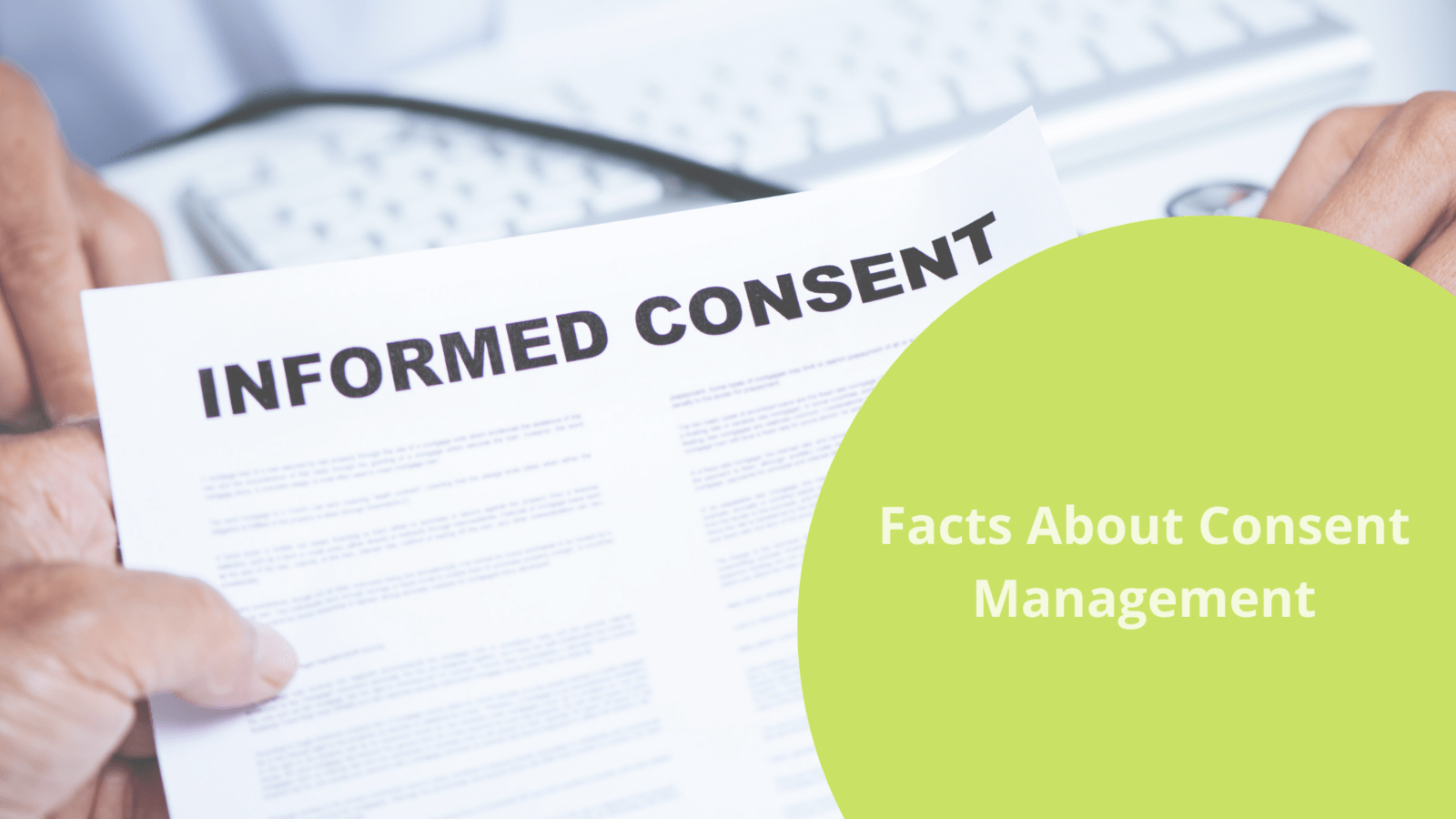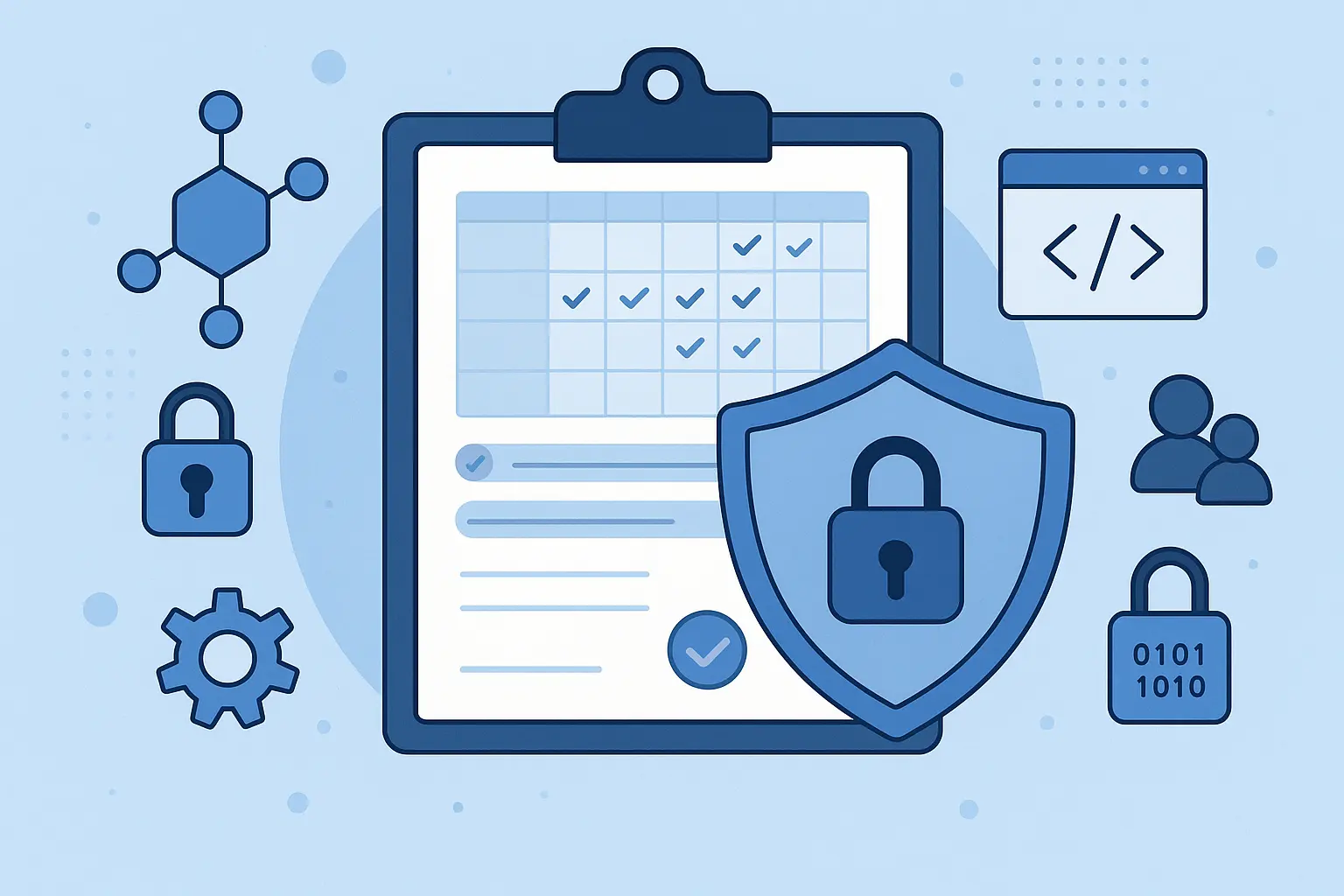Non-compliance fines grow almost every day. They’ve become the cause for tremendous losses and even the closure of businesses. These days, companies that are not careful when handling customer information are penalized, but their penalty expands beyond financial fines.
Without a proper consent management plan, you’ll need to pay big fines based on the laws and regulations of the markets you are working on. When people find out that you didn’t put any effort into keeping their data safe, the consequences unravel even further. This can ruin your reputation altogether, which is often worse than the penalty itself.
If you want to learn more about consent management and how it can impact the trust and loyalty of your customers, keep reading.
What Is ‘Consent Management’?
Consent management is the foundation of privacy compliance. To protect customers, privacy regulations appear and expand worldwide, demanding that businesses request explicit consent from users before they process their personal data.
While asking for consent might look like a simple matter of yes or no, there are many nuances to asking the question. For example, businesses need distinct consent questions for customer service or marketing. Users need to know not only that you’ll collect that data, but also why you’ll use it, how much of it you’ll store, and even for how long.
There are different regulations in the world, and the ones that you need to comply with may differ. For example, if you sell your products and services to people in the European Union, you need to follow the rules and regulations as set by the GDPR (go through this GDPR compliance checklist to learn more). However, if your company also sells to people in California, you also need to comply with the CCPA regulations.
Checking off these technical and legal details can seem overwhelming, but it is worth it since you’ll be avoiding high penalties. Not only that, but by making sure to keep your user data safe, you’ll also be doing well by your customers.
All Of This Is Made Easy With A Consent Management Tool!
It can be very hard to learn what regulations you need to follow and keep track of them on a regular basis. These change very often, especially in recent years when the accent is put on securing customer data.
Luckily, there’s a solution that will save you time and minimize the chances of error in your compliance. Osano is a consent management tool, a platform used to help you request consent, keep track of regulations, and build trust in your customers.
In other words, this simple-to-use management software is a cookie consent solution that will automate all the work for you and make sure that you are compliant with the regulations that concern your business.
Osano is the top-rated consent management software today, serving over 3 billion consents every month. It offers features like intelligent consent, third-party blocking, crowd-sourced violation reporting, and multi-language services.
Thanks to Osano, you can automate the consent collection and be compliant with data privacy laws of over 50 different countries.
Understanding The Laws And Regulations Concerning Consent
Consent is a highly documented aspect of privacy laws. In recent years, many countries have introduced or updated their privacy laws in regard to consent. They did this for good reason – consent is vital to the basic privacy of users’ data.
These days, users are more cautious than ever when sharing their personal data. Crime is on the rise and constantly evolving, so they are hesitant about sharing their personal data with every company. Compared to last year when 61% of people were willing to share their email addresses online, only 54% would do it this year.
If you establish a brand that cares about people’s privacy and requests consent for data usage, you can retain your clients by building more trust and loyalty.
So, let’s get a better understanding of what the law says about consent.
You should know that legal definitions of consent, as well as regulations and even fines, vary greatly by jurisdiction and law. Even so, the context of data rights and data privacy are similar across different legal frameworks. Almost every framework today, including the GDPR and the CCPA define consent as an unambiguous affirmation, given freely by the user, and vital to their privacy.
In the frameworks and laws, consent is requested to be clear and direct. The user must understand what it means. This means that asking consent is done with plain language and with a great deal of transparency. If you don’t make it clear, this can pose great legal issues even though you asked for consent.
In recent years, frameworks started demanding that consent requests are more specific than ever. Data systems these days are more complex, and the risks are even greater. This is why companies are required to share how they’ll use the users’ personal data and for what purposes. You can no longer just ask – can we use your data without giving the user more information.
Facts About Consent Management You Should Know
Now that you know a bit about how this works, let’s move to the most important thing – facts about consent management.
Fact No. 1: Ignoring Consent Management Costs A Lot More Than Before
Frameworks change all the time and in these last decades, they have skyrocketed!
Let’s consider some examples. Wind Tre, a telecommunications operator, was fined 16.7 million pounds for ‘unlawful direct marketing practices’ such as using personal data without consent, ignoring data protection guidelines, and creating confusing interfaces when requesting consent.
The biggest fine on record is the one issued to Amazon in 2021. In 2021, Amazon was fined $877 million for issues related to cookie consent.
As a matter of fact, the GDPR framework allows the authorities to issue fines that go up to $24.1 million or 4% of the company’s annual global turnover.
Just take a peek at how much these fines have grown over the years.
If such sums don’t ruin your business altogether, the backlash that follows will. What customer will want to buy from or share data with a company that is known to pay such high penalties for unlawful marketing practices? At first, you should know how to create a customer experience right. Using tools like advanced sales incentive software can help ensure your team operates within ethical boundaries while still achieving business objectives.
Fact No. 2: You Need Consent For Effective Targeted Advertising
Nowadays, it is hard to market a brand online because of the big competition. You need to work very hard to reach your audience and engage them to buy from you. For this, you need targeted advertising and quality products and services.
According to a study, targeted advertising is the number one reason to collect data. Now consider this – if you don’t ask for consent and lose the trust of your audience, how will you collect data for targeted advertising?
Fact No. 3: Companies Are Taking This Very Seriously Today
The frameworks are very strict, so they’ve prompted many businesses to work hard to comply with regulations. We’ve also witnessed how this can ruin a brand’s reputation. Today, over 50% of companies see privacy laws as the biggest obstacle in using data. In other words, 50% of companies are taking data privacy seriously and working hard to comply with regulations.
This tells you a lot about your customers and your competition. If your competition is working fiercely to comply with consent regulations and avoids penalties and a bad reputation that way, they must be doing something right!
Fact No. 4: Consumers Don’t Find Privacy Laws Very Effective
Even though privacy laws are improving, many consumers are still untrusting of regulations. This makes them extra cautious about sharing their data. It’s also why it is highly important for you to be clear and transparent, and make sure that they feel safe about sharing information with you.
They no longer expect companies to be transparent in privacy and data – they demand it! People will leave your site unless you inform them and ask for their consent. Privacy is considered a basic human right, and your users are more cautious than ever about sharing even the smallest bit of data.
Fact No. 5: Consumers Watch How Companies Respond To Privacy Laws
Privacy laws are public and warnings are all around us. When we say that people are more cautious than ever, we are putting this lightly. Research shows that customers that have or have not been impacted by breaches all watch how companies respond to breaches.
Let’s say that your company is somehow breached. The risks are tremendous today. Unless you secure customer data to avoid criminals from harming them, you’ll lose not only the customers that were victims of the breach but others, too.
This means that complying with regulations builds trust and loyalty. The same report shows that 87% of consumers wouldn’t do business with a company known to give away sensitive data without permission.
Consent Management Is Your Way To Build Consumer Trust!
Regulators are very serious about consent management, so the fines are devastating these days. However, data privacy is much more than avoiding non-compliance fines. Understanding how user consent works and doing this properly won’t just save you tons of money in terms of fines. It will also demonstrate to the audience that your brand is trustworthy and cares about their data. It’s one of your best tools for building trust and loyalty.








